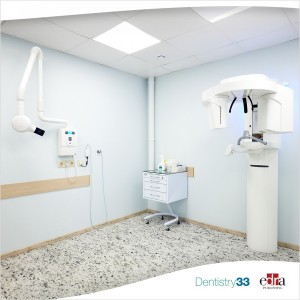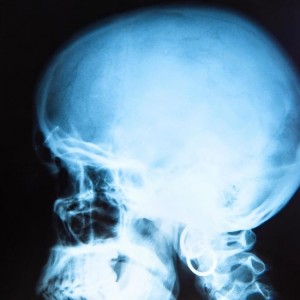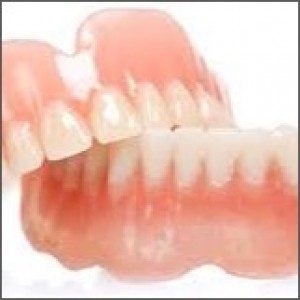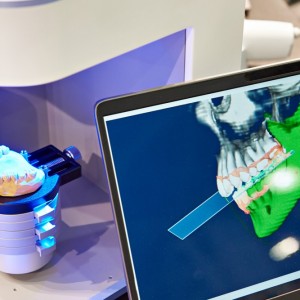
Is Dynamic Navigation the Future of Implant Placement Technology?
Implant dentistry has become the face of modern dentistry for replacing missing teeth. The stability and longevity of implants have revolutionized the industry and allowed dentists to provide better options for patients needing prosthetic rehabilitation. Two approaches to computer-guided implant placements exist: static-guided and dynamic-navigation systems. The static-guided system is a freehand technique for placing the implant, while the dynamic-navigation system uses computer imaging to guide placement.
Researchers from Vinshu Dental College in Andhra Pradesh, India, and Sahyog Maxillofacial Center in Maharashtra, India, recently published a study in the Journal of Oral Implantology to assess the use of the static-guided system compared with the dynamic-navigation system. Lead author Gautami S. Penmetsa, MDS, and colleagues state, “Computer-aided implants, a more recent innovation in implantology, have limited research literature. Hence, there is a dire need to conduct this research to evaluate the precision and predictability outcomes of conventional and dynamic navigation methods.”
Penmetsa et al. conducted a randomized controlled clinical trial in 40 patients needing zygomatic implants. Twenty patients were randomly assigned to a control group using the static-guided system, and 20 to the dynamic-navigation system. Inclusion criteria included patients in good physical and oral health; exclusion criteria included poor health, smoking, restricted mouth opening, and a history of head/neck radiotherapy. Upon implant placement, the researchers compared the entry, apex, and angular deviations between both treatment groups.
The results showed statistically significant mean deviations at the entry site in the dynamic-navigation group. At the apex, there was more variation in the static group, and a higher accuracy level was found in the dynamic group regarding angular deviation. The researchers also compared the right- and left-side accuracy and precision of both groups, discovering better predictability for the dynamic group.
This clinical trial shows that the dynamic-navigation system outperformed the static-guided system in entry, apex, and angular deviation. These findings lead Penmetsa and colleagues to conclude, “Dynamic navigation technology has proven to be more effective in precision and accuracy, emphasizing that computer-aided implantology will be the future of implant dentistry.” They also note, “Despite the cost and learning curve associated with dynamic navigation technology, its superior predictability in accuracy and precision makes it essential for clinicians to master.”
The full text of the article, “Comparative Evaluation of the Accuracy of Dynamic Navigation and Free Hand Methods During Zygomatic Implant Placement: A Randomized Controlled Trial,” Journal of Oral Implantology, Vol. 50, No. 5, 2024, is available at https://doi.org/10.1563/aaid-joi-D-23-00096.
About the Journal of Oral Implantology
The Journal of Oral Implantology is the official publication of the American Academy of Implant Dentistry and the American Academy of Implant Prosthodontics. It provides valuable information to general dentists, oral surgeons, prosthodontists, periodontists, scientists, clinicians, laboratory owners and technicians, manufacturers, and educators. The JOI distinguishes itself as the first and oldest journal in the world devoted exclusively to implant dentistry.
Source: http://www.joionline.org/orimonline/?request=index-html.
 Related articles
Related articles
Digital Dentistry 10 January 2025
The Use of Dynamic Navigation Systems as a Component of Digital Dentistry
The development of dynamic navigation system (DNS) has facilitated the development of modern digital medicine.
Endodontics 29 August 2023
Effect of field of view, voxel size on CBCT accuracy of navigation in endodontic microsurgery
This study aimed to evaluate the influence of field of view and voxel size on the accuracy of dynamic navigation–assisted endodontic microsurgery.
By Arianna Bianchi
The aim of the study was to evaluate the use of guided dynamic navigation for the endodontic treatment of teeth that presented obliteration of the pulp canal.
Digital Dentistry 22 October 2025
Artificial intelligence in dentistry: Exploring emerging applications and future prospects
This narrative review aimed to explore the evolution and advancements of artificial intelligence technologies, highlighting their transformative impact on healthcare, education, and specific aspects...
Editorials 10 October 2025
With proud smiles and crisp white coats, ninety-three learners from the DDS Class of 2029 and the International Dentist Pathway Class of 2028 marked the start of their dental careers at the UCSF...
 Read more
Read more
Much like EMTs rushing to the scene after an accident, stem cells hurry to the site of a skull fracture to start mending the damage. A new finding has uncovered the signaling mechanism that triggers...
Products 05 November 2025
SimplyTest has launched a groundbreaking saliva-based test to detect high-risk strains of oral human papillomavirus (HPV), a major cause of oropharyngeal cancers.
News 05 November 2025
Perimetrics, Inc., a dental technology company pioneering quantitative diagnostics, announced today that the U.S. Food and Drug Administration (FDA) has granted clearance for the InnerView...
News 05 November 2025
On October 15, open enrollment for Medicare began nationwide. Hundreds of thousands of seniors in New Jersey will once again face the challenge of finding the right Medicare coverage, including the...
Digital Dentistry 04 November 2025
Digitalisation is an expanding field in dentistry and implementation of digital teaching methods in dental education is an essential part of modern education.















